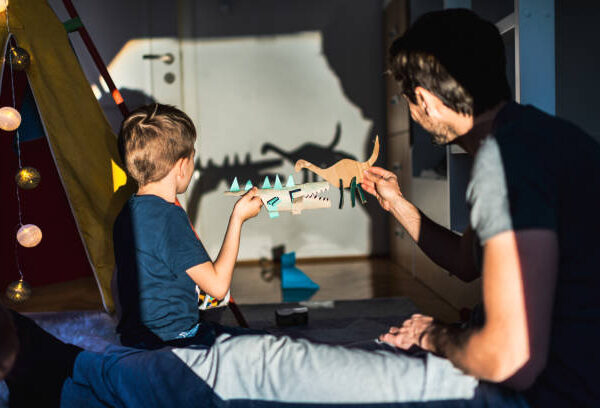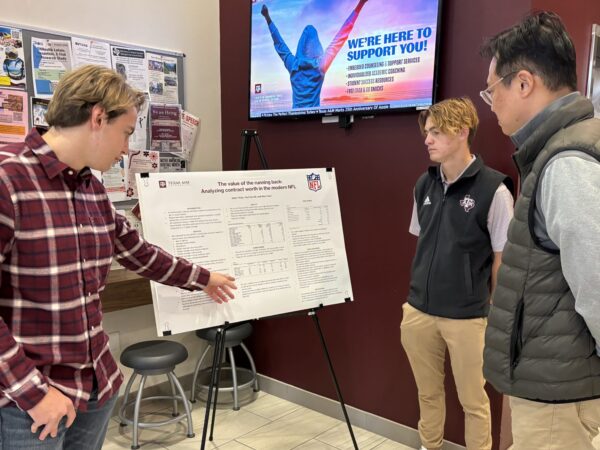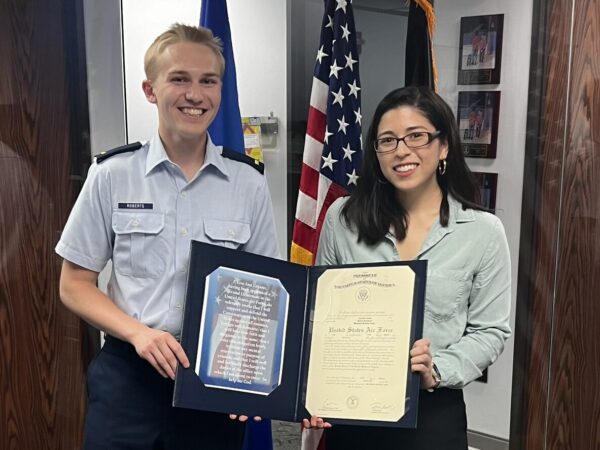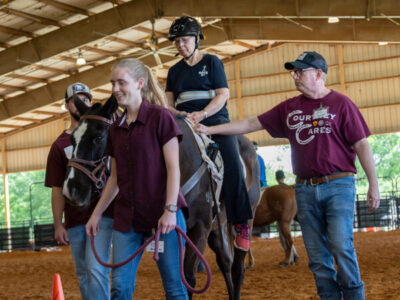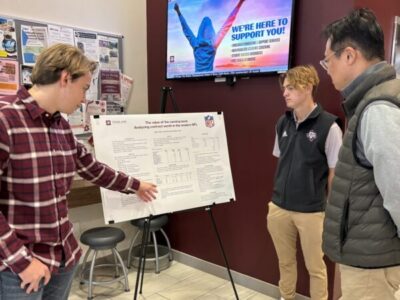Open For Research: State Of The Art HCRF
A new facility on the Texas A&M campus will be a university-wide resource for collaboration on research in nutrition, aging, performance, health and well-being. The College of Education and Human Development held a grand opening celebration for the Human Clinical Research Facility (HCRF) on April 11.
The 21,518 square foot facility houses both the Center for Translational Research in Aging and Longevity (CTRAL), headed by Dr. Nicolaas Deutz, and the Exercise and Sport Nutrition Lab (ESNL), headed by Dr. Richard Kreider.
“I think it is a very good place for other researchers on campus to start working with us to do more clinical research because, in the end, that is what we want,” explained Dr. Deutz.
“Developing this integrated Human Clinical Research Facility will not only enhance our ability to do exercise, nutrition, metabolism, performance, rehabilitation and aging-related research, it will also help move the university to another direction in research for years to come,” added Dr. Kreider, the executive director of the facility.
CTRAL was developed in 2006 and is engaged in research on nutrition, exercise and metabolism in relation to aging and the common diseases of our aging population. The ESNL was founded in 1997 and focuses on researching the role of exercise and nutrition on health, disease, rehabilitation and performance. Together, researchers from ESNL and CTRAL provide state-of-the-art translational biomedical research facilities to conduct exercise and nutrition related studies.
“What’s being done with this facility follows as closely as you can get to the land grant mission of Texas A&M University,” explained U.S. Representative Bill Flores ’76, a special guest and speaker at the grand opening celebration. “I commend Texas A&M for its commitment to expand the research activities conducted by the university. This commitment not only improves Texas A&M, it improves opportunities and life here in the Brazos Valley and all across Texas and the nation, actually across the world.”
Visitors to the grand opening were given guided tours of the facility. Research areas include an exercise training and rehabilitation core to conduct endurance and resistance-exercise based training and rehabilitation programs; an exercise physiology and body composition core to conduct comprehensive exercise nutrition and clinical intervention assessments; a clinical research unit consisting of a 12-bed overnight stay unit for human clinical trials and a metabolic kitchen for nutritional studies; a compounding unit to prepare IV infusion solutions; a mass spectrometry and analytical core for in-depth analysis of metabolic, nutritional and clinical markers; and an education core to provide an open environment for education, collaboration and student mentoring.
“The investments we make in buildings such as this are investments going forward and they are critical to Tier 1 universities such as Texas A&M,” said President Michael K. Young. “The collaboration among the colleges, researchers and students will produce knowledge that will benefit people around the world. Such a facility as this is central to all we do.”
Among the many priorities of the College, faculty and staff are focused on improving quality of life among individuals and communities for a healthier Texas and world. The knowledge and discoveries made within this facility will ensure the College is leading this charge.
“We want to create new knowledge and new futures, and this facility will be among the best in the world for research and education. We hope to change the lives of people for years to come,” added Dr. Joyce Alexander, dean of the College of Education and Human Development.
Learn more about CTRAL research here: tx.ag/ctral
Learn more about ESNL research here: tx.ag/esnl
About the Writer
Ashley is the Media Relations Coordinator and responsible for news coverage in the Department of Teaching, Learning and Culture as well as the Department of Educational Psychology.
Articles by AshleyFor media inquiries, contact Ashley Green.


